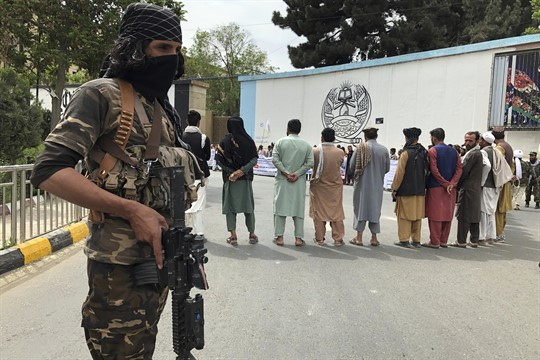
Over the past month, a series of violent episodes on Afghanistan’s borders have put the country’s relations with its neighbors in the spotlight. Some incidents involved Taliban fighters, such as clashes on the border with Iran.
Others, like the Islamic State’s rocket attacks on Uzbekistan and Tajikistan, highlighted the Taliban’s inability to control Afghanistan’s borderlands. And a wave of violence in Pakistan by militants based in Afghanistan has grown so intense that in mid-April Pakistan conducted reprisal airstrikes on Afghan territory, killing dozens of civilians and turning up the diplomatic heat between Islamabad and Kabul.
Inflamed tensions between the struggling Taliban government and its neighbors have coincided with a dark domestic turn, including increased repression of women and crackdowns on minority ethnic communities. A critical moment was March 23, the date by which—Kabul officials had promised Afghans and the world—teenage girls would be permitted to resume attending school across the country. Instead, the Taliban’s emir overruled the government and extended the ban indefinitely. The Taliban has since issued a flurry of additional restrictions on women and social behaviors.
